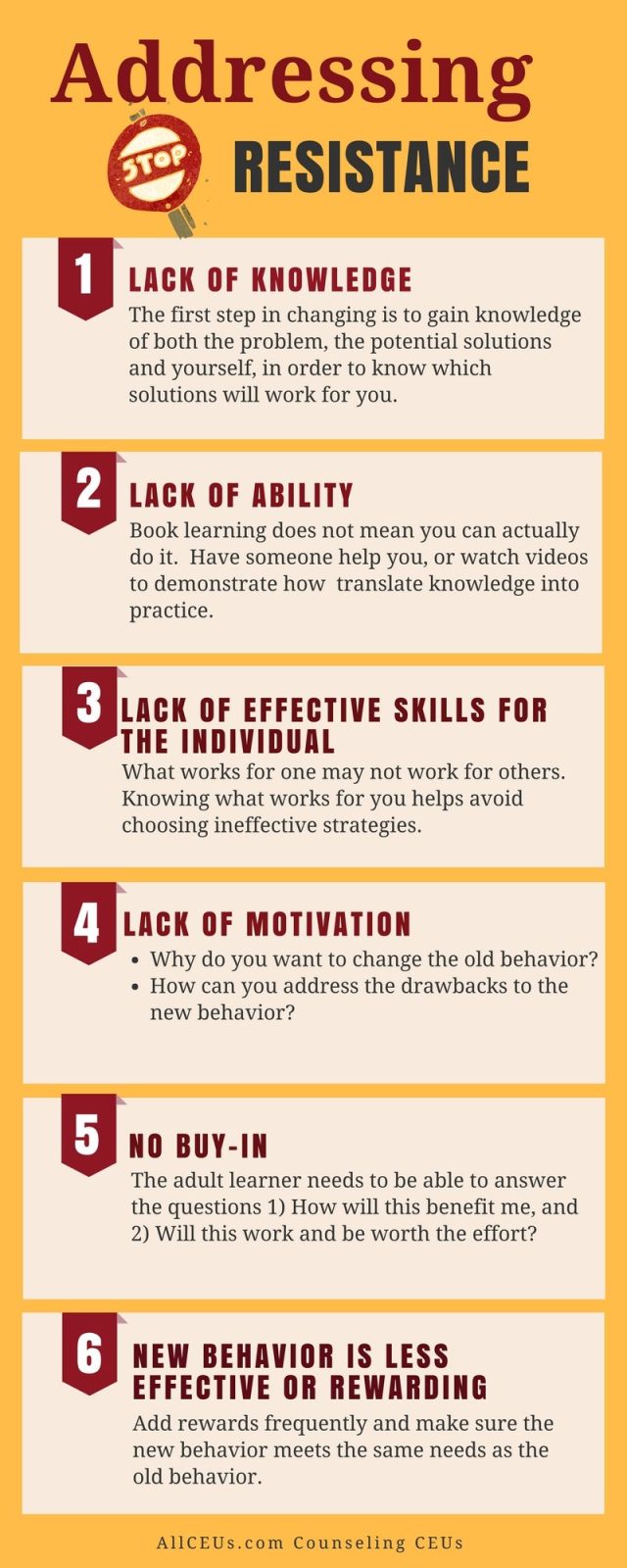
As clinicians, supervisors and parents and even when trying to change our own behavior, sometimes it seems that there is a block. Not all “blocks” are motivation/resistance related. This article explores potential reasons people may fail to change (be noncompliant) and how to address those issues to create a win-win situation.
Noncompliance is NOT a respect issue and can result from:
- Lack of knowledge
- Lack of ability
- Lack of effective skills for that person
- Lack of motivation
- No buy-in to new skill or behavior
- New skill or behavior less effective than old skill or behavior
If the person is not following the change plan because they do not have the skills, it is a Learning vs. Performance issue. Learning means they have the book knowledge. Performance means they can translate that book knowledge into action. For example, a person can memorize all the steps to changing their oil, but when it comes to actually changing their oil, they may not be able to find the right pieces or may not have the confidence that they are doing it right. If the client is motivated but not following through, ask:
- Do they know it?
- Can they do it?
- Do they have confidence that they can do it?
How do you teach adult learners: ABCD
- Acquisition: Auditory, Visual, Kinesthetic
- Buy In (Why do I care?)
- Connected to current/prior situations
- Divided into manageable parts
How do you teach performance?
- Role play
- Hypothesizing— “Think of a time when this skill could have been useful. How would things have been different if you would have used this skill?”
- Systematic exposure/experience
- Envision yourself successfully navigating a stressful situation using new skills
Motivation
- Why is the new behavior less motivating?
- What are the benefits of old behavior (Drinking, Eating, Cutting, Screaming, Sleeping)?
- How can you meet those needs now?
- Drawbacks to new behavior (Less immediately effective, less enjoyable, hard to remember to use them)?
- How can you minimize those?
- What are the benefits of the new behavior?
- How can you maximize those?
- What are the drawbacks to the old behavior?
- How can you magnify/remember these?
Motivation Maintenance
Regularly review and add to the list of benefits of change and drawbacks to staying the same or returning to old behaviors.
Frequently explore new or lingering drawbacks to change (still not happy or convinced it is worth it), and new or lingering needs resulting from giving up old behavior
Summary
Noncompliance often results from fear/hopelessness/disempowerment. Continuing to press the issue is like getting a 3 year old to eat Brussel sprouts–it aint easy. Increasing motivation and rolling with resistance are ways of helping clients identify why they are noncompliant and explore ways to deal with that (change the intervention or their attitude).
View the Counseling CEU course for this presentation.
This course is also included in our unlimited CEU packages.
